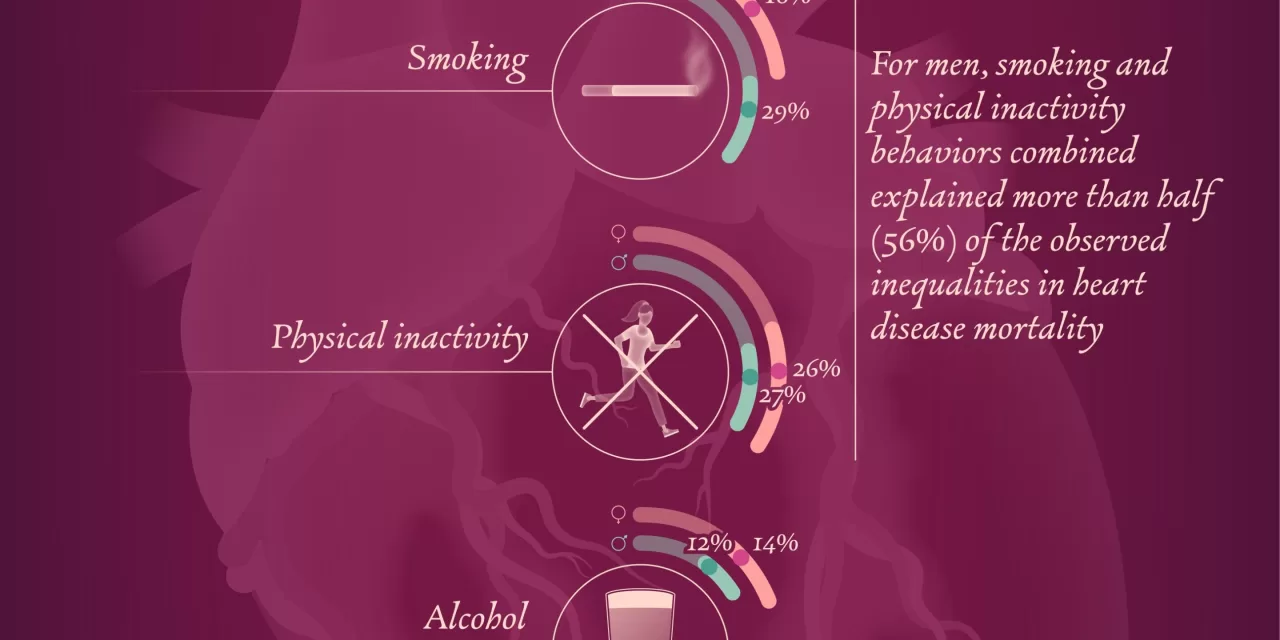September 17, 2024 – In a pivotal new study published in the open-access journal PLOS Medicine, researchers have revealed that lower socioeconomic status is significantly associated with a higher risk of death from coronary artery disease (CAD), with unhealthy behaviors playing a substantial role in this disparity.
The study, conducted by Dr. Yachen Zhu from the Alcohol Research Group in the U.S. and Dr. Charlotte Probst from the Center for Addiction and Mental Health in Canada, underscores the urgent need to address unhealthy behaviors that disproportionately affect individuals from lower socioeconomic backgrounds. Coronary artery disease, which occurs when the heart’s arteries become obstructed by plaque, is a leading cause of mortality in the U.S., and its impact is notably more severe among those with lower socioeconomic status.
By analyzing data from 524,035 adults aged 25 years and older—whose mortality statuses were recorded in the National Death Index and who provided information on demographics and health behaviors through the National Health Interview Survey—the researchers sought to unravel the factors contributing to the heightened risk of CAD deaths among economically disadvantaged groups.
The study utilized education level as a primary indicator of socioeconomic status and focused on four key behavioral risk factors: smoking, alcohol use, physical inactivity, and body mass index (BMI). Findings revealed that these four factors together account for a staggering 74% of the difference in CAD mortality risk among men of varying socioeconomic statuses and 61% among women.
The researchers emphasized that these unhealthy behaviors often co-occur among individuals from lower socioeconomic backgrounds, thereby amplifying the overall risk of CAD-related deaths. They advocate for targeted public health policies and interventions that address these behaviors both individually and collectively. Tailored public health campaigns aimed at increasing awareness and promoting heart health are crucial to mitigating the socioeconomic disparities observed in CAD mortality rates.
In conclusion, Dr. Zhu and Dr. Probst highlight the necessity of customized outreach efforts to reduce the impact of unhealthy behaviors and ultimately lower the risk of coronary artery disease among economically disadvantaged populations.
For further details, the study is available in PLOS Medicine: Zhu Y, Llamosas-Falcón L, Kerr WC, Rehm J, Probst C. “Behavioral risk factors and socioeconomic inequalities in ischemic heart disease mortality in the United States: A causal mediation analysis using record linkage data.” PLoS Medicine (2024). DOI: 10.1371/journal.pmed.1004455.












